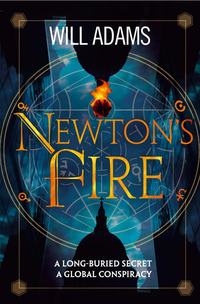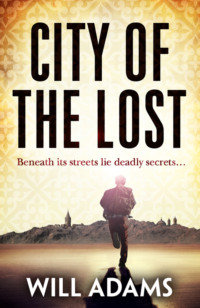
Полная версия
The Lost Labyrinth
‘And that’s your business because?’
The girl’s shouting continued, anxious, beseeching, panicked, her Greek too fast for Edouard’s limited grasp, but the gist all too clear. He hesitated. Mikhail smiled down at him, aware what must be going through his mind, curious how he’d respond. He couldn’t just stand there, so he climbed the stairs, suppressing his fear as he walked past Mikhail, then stopped in dismay when he saw the girl lying naked on the bare mattress, all the sheets, pillows and duvet having spilled to the ground. She saw him and tried to cover herself with her right arm and by turning onto her side. Her movements were so awkward that they drew attention to her left wrist, handcuffed to the bedpost. From her modest breasts, fat hips and fluffy pubis, he guessed she must be about fifteen years old, the same age as his own twins. There were multiple livid bruises on her upper arms and chest, and what looked like a cigarette burn near her navel, and a livid redness around her throat, as though she’d been nearly asphyxiated. She would have been pretty, except for the accidental mask of hair glued by her own tears and blood to her face. There were spatters of red on the mattress too, along with other motley stains that Edouard had no desire to analyse. He turned appalled to Mikhail. ‘What the hell have you been doing to her?’ he demanded.
‘Nothing she didn’t want.’
‘How can you say that? Look at her! She’s begging you to let her go.’
‘What a person says isn’t necessarily what they want.’
Edouard shook his head. ‘How old is she?’
‘How would I know that?’
‘Didn’t you think about asking?’
Mikhail laughed. ‘Look at you! You just want her for yourself, don’t you?’
‘You’re sick.’
‘Go ahead. She won’t mind, believe me. She’ll enjoy it.’
‘What kind of man are you?’
‘The kind you’d be, if you had any balls.’
‘I’m letting her go,’ said Edouard. ‘Where’s the key?’
‘I’m not done with her yet.’
‘Yes, you are.’ He spoke boldly and locked gazes with Mikhail, certain that righteousness would be enough. But Mikhail’s ice-blue eyes punctured his confidence, and he realised too late that this was a different kind of man to any he’d ever dealt with before, even to the other Nergadzes. His heart began to race, he felt a dryness in his throat, smelled a faintly rancid odour that he intuitively recognised as his own fear. It triggered an unwelcome memory: waiting to be seated at a Tbilisi restaurant many years before, a drunken man tripping over his own feet and bumping into a second man sitting on a barstool nursing a glass of malt liquor clanking with ice, making him spill a little over his hand. His apology had been too slow, too dismissive. The strangest look had passed over the seated man’s face. He’d shattered his crystal tumbler on the marble bar-top, then turned and thrust its splintered base into the drunk’s face before giving it a sharp leftwards twist, shredding the man’s eyeball and ripping his nose and cheek apart, blood spurting and spattering across the bar and around the restaurant as he’d crashed howling into tables. Over the years since, Edouard had forgotten the victim’s ravaged face, but not the chill calculating look on the assailant’s face in the half-second before he’d attacked, as though rage was an army within his control, a force to be deployed at will.
The girl must have seen the shift in power; her sobs grew louder, more despairing. Her fear infected Edouard. He felt beads of sweat on his forehead, and trickles running coldly down from his armpits. ‘I’m sorry,’ he said, lowering his eyes submissively. ‘I didn’t mean anything.’
For a moment he feared his apology wouldn’t work, but then the intensity of the moment seemed to slacken, and just as suddenly it was gone altogether. ‘Maybe you’re right,’ shrugged Mikhail. ‘We do have business to discuss.’ He picked up his trousers, fished out a small steel key, tossed it across.
Edouard’s hands were shaking as he struggled to unlock the cuffs; but finally they snapped open and the girl grabbed a sheet to cover herself, hurried sobbing to the bathroom. ‘I’ll get her clothes,’ said Edouard, heading back out onto the landing. Boris and his men had just arrived, were taking seats around the coffee table, lighting cigarettes. He gave them a sour look, for they must have heard his confrontation with Mikhail. But you needed a thick skin to work for the Nergadzes; you needed to know who was boss. ‘Maybe we should give her something,’ suggested Edouard, when he went back up. ‘To keep her mouth shut.’
‘She won’t talk,’ said Mikhail.
‘How can you be sure? I mean, what would your grandfather say if this got out?’
‘I didn’t do anything to her that she didn’t agree to. Ask her if you like.’
Edouard knocked on the bathroom door. ‘I’ve got your clothes.’ The door opened a fraction, her hand shot out and grabbed them. He stood there, all too aware of Mikhail watching him, until the door opened again and she emerged, her face washed but pale, her hair brushed, holding the rip in her blouse.
Edouard put an arm around her shoulder and led her towards the bedroom door, but Mikhail stepped in front of her. He had his white jeans in his hand, and now he pulled his leather thong belt free from its loops. The girl’s face crumpled at the sight. ‘No,’ she begged. ‘Please no.’
Mikhail smiled reassuringly. ‘Don’t be alarmed. I just wanted to make a point to our friend Edouard here. He thinks you’re going to tell people what happened tonight. But you’re not, are you?’
‘No. No. I swear I’m not.’
‘Not even if they try to force you?’
‘No.’
‘Why not?’
‘Because you know where I live,’ she said, as if repeating lines. ‘Because of what you’ll do to me and my parents and my brother if I do.’
‘Exactly,’ said Mikhail. And he stepped out of her way.
Edouard steered her out the door, to the stairs and down. ‘Where do you live?’ he asked.
‘Piraeus,’ she said, her whole body shuddering wildly, as though she’d just come in from a blizzard.
‘I’ll get one of the guys to drive you.’
She grabbed his arm. ‘Can’t you take me? Please.’
Mikhail emerged onto the landing, now dressed in the white jeans, a maroon silk shirt and a black leather trench-coat. Boris rose to his feet. ‘Great to see you again, boss,’ he said. ‘It’s been too long.’
‘Who are those two with you?’
‘Davit and Zaal,’ said Boris, indicating them in turn. ‘They’re good men. I chose them myself.’
‘You brought the money?’
Boris nodded and cleared space on the coffee table, then laid a large steel case flat upon it. He entered combinations into the two locks, then opened it up and turned it around for Mikhail to see. There were fat bundles of euros within, every denomination from 50s to 500s, more cash than Edouard had ever seen. Even the girl gave a little gasp.
‘How much?’ grunted Mikhail.
‘Four million,’ said Boris.
‘I asked for ten.’
‘This is all we could arrange at such short notice. Besides, you know how negotiations are. If you show up with ten million, then ten million is what they’ll—’
‘Is that what my grandfather told you to tell me?’
‘Yes.’
There was a moment of silence as Mikhail absorbed this response. It was like watching a land-mine that had just made an unexpected noise. ‘Fine,’ said Mikhail, finally. ‘It will do.’ He walked downstairs and over to the case, took out a bundle of 50-euro notes, rolled it up into a cylinder. Then he went to the girl, hooked a finger into her bra, tucked the bank-notes inside. ‘Buy yourself something pretty,’ he told her. ‘A dress or a necklace or something. You can wear it for me when you come back tomorrow.’
‘Come back?’ she asked, appalled.
‘You will, you know.’ He turned to Edouard. ‘Women always fall for their first man. It’s in their genes or something.’
‘I’m not coming back,’ she protested. ‘I’m never coming back.’
‘That’s what they all say,’ he grinned. ‘But then they come back after all. They just can’t help themselves.’ He turned to the others. ‘Davit. I want you to drive her into town. Find her a taxi. Make sure she’s well taken care of. Then come back here. We’ve got work to do.’
‘Yes, boss.’ He came across and took the girl by her elbow.
‘What about my books?’ she wailed. ‘Can’t I at least have my books back?’
‘You can pick them up tomorrow.’
‘But you promised. They’re not even mine. They’re Demetria’s.’
‘I said tomorrow,’ said Mikhail. ‘Get here around five. We’ll be busy until then.’
‘But tomorrow I’m going to—’
Mikhail’s face darkened. ‘Don’t make me come looking for you, Olympia,’ he warned. ‘I will if I have to; but you’ll regret it, I promise.’ He watched Davit escort her out the door, then turned back to Edouard and the others. ‘Well, then,’ he said, rubbing his hands together. ‘Perhaps we should get down to some business.’
II
‘You’re kidding,’ said Knox dazedly. ‘Petitier had found the golden fleece?’
‘That’s not what I said,’ replied Nico carefully. ‘And it’s not what he said either. At most, he implied that he’d found it, or something to do with it. He left himself plenty of room to back away from it, if he so wished. He could have put it down to a misunderstanding. He could have claimed it was pure coincidence that those were the only two words on the seals that we could read.’
‘He was a Minoan scholar. No one would have believed him.’
‘No,’ agreed Nico. ‘Which is precisely why I agreed to step aside so that he could give his talk.’
‘And Augustin knew about this?’
‘I can’t say for sure, but it’s certainly possible. You see, I—’ He broke off as the BMW bumped onto the kerb and pulled up outside an imposing-looking building.
‘Evangelismos Hospital,’ said Charissa economically. ‘You all go on in. I’ll find somewhere to park.’
Nico shook his head. ‘I have to leave you, I’m afraid. I need to go to the hotel, tell all our delegates about tomorrow’s revised programme.’ He pulled an anxious face. ‘You do understand?’
‘Of course,’ said Knox. ‘But maybe we could meet up later? For dinner, say?’
‘Excellent idea. Do you know the Island?’
‘No.’
He kissed his fingertips. ‘It’s in Exarchia. Charissa knows where. The best seafood in Athens, and not too expensive. Not for what it is, at least. I’ll book us a table, if you like.’
‘Sounds perfect. What time?’
He checked his watch. ‘Nine-thirty, say. That should give me enough time. If I can find a taxi, at least.’
‘You two go on in ahead,’ said Charissa. ‘I’ll drop Nico at the hotel, then come back.’
Knox and Gaille made their way through an archway into the staff car park. A TV crew and a couple of journalists were having a cigarette and a laugh together at the foot of the front steps, waiting for something to happen. In the evening gloom, it was easy enough for Knox and Gaille to slip past them and up the marble steps. The woman behind the information desk was remarkably square-looking, as though someone had thrown a rug over a washing machine. They asked her about Augustin. She directed them to ICU One, but warned that the police weren’t allowing him any visitors other than his fiancée.
Bulbous lamps glowed like multiple moons in the high, wide corridors. Hard heels clacked like dominoes on the meander-patterned tiles. Monitors, gurneys, laundry baskets and other hospital paraphernalia were stacked against walls painted pastel yellows and blues, a worthy attempt at cheerfulness that had long-since faded into drabness. A wail pierced the hush: someone struggling with fear or grief. Knox flinched at a decade-old memory, walking to another ICU unit in a different Greek hospital, saying goodbye to his sister Bee on the day he’d been told she was going to die. The muffled, oppressive echoes of these places, the brutal whiteness of the equipment, that numb, dreamlike sense of wafting rather than walking, of being unable to protect the ones you love.
A policeman was sitting on a hard chair outside the ICU’s double doors, reading a magazine. ‘Damn,’ muttered Knox. He’d hoped the police had merely issued edicts against visitors, not actually put someone on watch. A heart-monitor was on a trolley against the wall. ‘Distract him,’ he told Gaille, as he grabbed it.
She nodded and went to ask a question. The policeman shook his head. She asked him something else, smiled and touched his arm. She had the most disarming smile, Gaille. It could melt glaciers. The policeman rose to his feet and walked a little way with her, then pointed her up the corridor, laughing and waving his hands, barely glancing at Knox as he ducked his head and pushed the monitor through the ICU department’s double doors. He left it against the wall, washed his hands with gel at a basin, dried himself off, opened the door to the ward itself. Two nurses behind the reception desk were squabbling in hushed low voices; he caught something about missing supplies. Claire was in the far corner, sitting on the far side of one of the four beds. Even though Knox had braced himself, it was still a shock to see Augustin, the tubes and monitors of life-support, the cage over his chest to keep the bedclothes off his upper body, the white bandaging around his skull, the oxygen mask over his mouth and nose, his cheekbone swollen and tinted lurid inhuman colours.
Claire must have sensed his arrival, for she looked up, haggard, grey and harrowed, no remnant of her earlier joy. She frowned and blinked to see him standing there, as though struggling to place him. Then she touched a finger to her lips, got to her feet and came to join him outside.
‘How is he?’ he asked.
‘How does he look?’
Knox didn’t know what to say, what Claire needed from him. Situations like these rendered normal language and the conventions of human behaviour inadequate. He put his arms around her, held her against him, stroked her hair. It took a moment for the sobs to arrive, but once they’d started she couldn’t stop, her shoulders shaking with grief, anxiety and fear—and not just on Augustin’s account, he imagined. It was one of the crueller aspects of tragedies like this, that they made good people like Claire worry about their own futures, so that they’d later lacerate themselves for their selfish thoughts while their loved ones lay dying. He put his mouth close to her ear and murmured: ‘It’s going to be all right. I promise.’
She stiffened at once, so that he knew it had been a mistake. She broke away, took a step or two back, wiped her eyes. ‘All right?’ she asked. ‘Are you an expert on traumatic brain injury, or something?’
‘I didn’t mean—’
‘Augustin’s skull has almost certainly been fractured, and his parietal and frontal lobes violently traumatised. His blood-brain barrier will have broken down. Cerebral oedemas are going to form. Do you know what they are?’
‘No.’
‘They occur when blood and other fluids are pumped into the brain faster than they can be removed. The whole head swells up, like a sink filling when the plughole is blocked. First it will affect his white matter, then his grey matter. It’s one of the most common causes of irreversible brain damage, and it’s happening to Augustin right now, and there’s nothing I can do about it, except hold his hand and pray. And you’re telling me it’s going to be all right.’
‘I’m so sorry, Claire.’
She nodded twice, wiped her eye again with the heel of her hand. ‘I’ve worked in a hospice,’ she told him. ‘I’ve seen car-crash victims and gunshot victims and people with brain tumours. You think I haven’t gone through this before? The doctors are putting Augustin into an induced coma: who knows if and when he’ll come out of it? And then what? Traumatic brain injuries don’t kill at once. Did you know that? They take their own sweet fucking time about it, while the body just falls apart piece-by-piece around them. And even if he should pull through, he’ll be at increased risk for the rest of his life from tumours, depression, impotence, epilepsy, Alzheimer’s, headaches, you name it. So please explain to me just how it’s going to be all right.’
‘I’m so sorry,’ repeated Knox helplessly.
‘What good is that? What good is being sorry? What are you going to do about it?’
‘Everything I can.’
She nodded briskly, as though this was what she’d been working for. ‘One of the nurses overheard the police earlier. They want to move Augustin out of here. They want to take him into custody. He’ll die in custody. That’s what they want, of course. They want him to die, because they think this whole incident will go away with him. So if you really want to help, do something about that. Stop them from moving him.’
‘I’ll do my best. I promise.’
‘Your best? Like when that fucking monster was beating Augustin half to death?’
‘What do you mean?’
‘I mean you could have at least tried to stop him. You could at least have tried. He would have done, if it had been you. He’d have done anything for you. But you just stood there.’
Silence fell. Knox looked helplessly at her, feeling sick. ‘I’m sorry,’ he said again.
But she turned her back on him and didn’t look round until after he’d left the ICU.
EIGHT
I
The log fire threw flickering light around the castle’s great hall, tinting the stone walls orange-grey. It burned so strongly that Sandro Nergadze could feel its warmth on his back through his shirt and jacket. Yet he felt a distinct chill all the same. ‘Would you care to repeat that,’ he said tightly.
‘You’ve got to understand something,’ said General Iosep Khundadze. ‘What you’re talking about is a situation where the normal army command will break down.’ He nodded at the two media magnates seated further along the oak table, who’d just outlined their plans. ‘Even if these two can make their vote-rigging charges stick—’
‘We can make them stick,’ said the newspaper tycoon named Merab. ‘If we get the exit-poll data we’ve been promised, at least.’
‘What are you suggesting?’ demanded Levan Kitesovi, head of Georgia’s largest independent polling agency, angrily. ‘Isn’t my word good enough now?’
‘Gentlemen, gentlemen,’ said Sandro. ‘We have to trust each other. That’s why we’re all here.’ Everyone was a little on edge. Rumours were swirling of a new intelligence department set up specifically to investigate the Nergadze campaign. Their security arrangements had been duly tightened, because it could be awkward for their guests to explain what they were doing here this weekend. They’d swept all the rooms for bugs, had taken additional precautions against aerial surveillance, had hired more guards. But such security measures were a double-edged sword: they always made people feel more nervous.
He turned back to the general. ‘Can we please assume that the first part of our plan has worked. Otherwise, there’s really no point us discussing it. It’s election day. The media use the exit polls to announce a come-from-behind Ilya Nergadze victory. But then the government declares victory. We flood the radios with stories of government lackeys carting off ballot boxes in mysterious vans. Our sources inside the ministries leak corroboration. Our friends across the world denounce the president as corrupt. The Supreme Court, Church and police…’ he leaned forward to acknowledge their representatives ‘…will speak out on our behalf, or at least remain deadlocked. And so everyone will look to the ultimate arbiters of power in such situations: the army. Last month you assured us that you could bring your colleagues with you; enough of them to make the difference, at least. What’s happened to change your mind?’
A faint sheen had appeared on the general’s brow. When he’d made his promises, Ilya Nergadze’s cause had still seemed hopeless. ‘As I was saying,’ he growled. ‘Even if you can make all this happen, even if it looks like the president is stealing victory, the whole army won’t suddenly switch sides. At best, what you’ll get is factions. I can certainly help you exploit those factions.’
‘I should hope so,’ muttered Sandro, sitting back in his chair, looking up at the family portraits that liberally decorated the walls of the great hall, dating from the reign of Erekle II right down to the present day. All had the characteristic Nergadze features; all were shown as noble and brave and powerful; all were signed by one or other of the great masters of Georgian art. And all were fakes he’d commissioned over the past few years, to give their family a necessary patina of heritage and respectability. The whole world was a fraud; some people knew it, but most didn’t.
‘But that’s not enough,’ continued the general. ‘You need to understand how the army works. When the usual chain of command breaks down, as it will in this situation, you become dependent upon other factors. In particular, you become dependent upon the will of the soldiers themselves. They’ll no longer have to obey orders so much as choose which orders to obey. And they’ll follow the officers they admire and trust, not the ones with the most pips and stripes. Those are the people we need on our side; and it may surprise you to know that bribes will only go so far with such men. It may surprise you to know that men like this, the soldiers that other soldiers most look up to, actually value notions like honour and courage and patriotism.’
‘Spare us the sermon,’ said Ilya. ‘Get to the point.’
‘Very well,’ said the general, meeting Ilya’s gaze. ‘The point is this. They won’t do it. Not for you, at least. They don’t like you enough.’
‘Why not?’ asked Ilya.
‘Because they think you’re corrupt. And they won’t risk civil war just to replace one corrupt politician with another.’
There was a shocked silence. No one spoke to or about Ilya Nergadze that way. ‘How dare you?’ burst out Sandro. ‘My father’s not corrupt.’
‘Really?’ replied the general dryly. ‘Then why the fuck does he pay me a hundred thousand dollars every month?’
A ripple of laughter, evident admiration for such blunt talk, was quickly stifled. ‘Very well,’ said Ilya, who knew when to bully and when to listen. ‘What do you suggest?’
‘Our country is still bleeding from the Russian fiasco,’ said the general. ‘People are desperate for change, but not just any change. They want change with hope. They want change with honour. Convince them that you’re the man of destiny Georgia is crying out for, and the army will flock to you like to a saviour, I won’t need to persuade anyone. At the moment you’re head of a political party; you need to become head of a movement. You need to inspire people. You need to hold up a flag for them to follow. Until then…’ He shook his head.
Silence fell around the table following this sober assessment. Everyone knew in their hearts it was true, not just for the army, but for Georgia as a whole. Ilya leaned forward. ‘A flag for them to follow,’ he murmured. ‘There is something.’
‘What?’
He glanced at Sandro. ‘My son is working on it as we speak.’
Everyone looked Sandro’s way. He felt his gut clench. Surely it was too early to float the idea of the golden fleece. If nothing came of it, they’d be a joke. He looked up, seeking inspiration, at the great shield on the wall opposite. It was so brightly polished that he could see the blur of his own reflection, and the orange glow of the fire like a halo behind him. It carried the Nergadze family crest, a lion rampant holding a spear. He’d commissioned that too, along with all the other weaponry and suits of armour that bedecked the walls. Curious about how convincing these fakes were, he’d taken several to Tbilisi where he’d arranged for Edouard, their tame historian, to come across them as if by accident. How the great expert had drooled! How they’d laughed at him once he’d gone! But if Gurieli could fool someone like him…‘I need to speak to some people before I can share this with you all,’ he said. ‘But, believe me, you can expect to hear some very exciting news indeed.’







